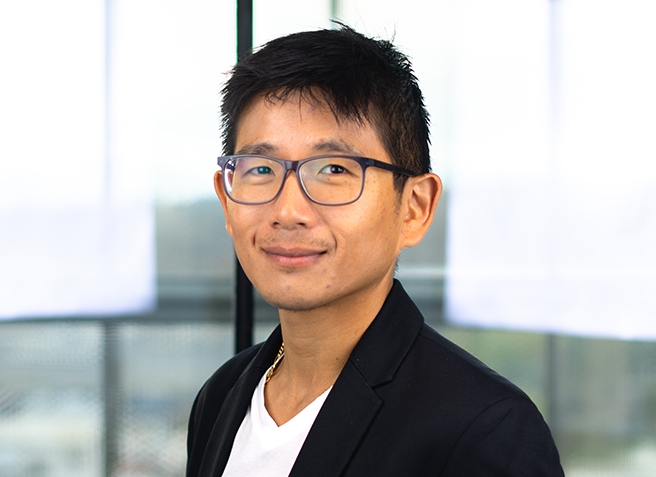
From February 2013 to January 2017, Dr. Jian Xiang LIAN was a Ph.D. student under the supervision of Prof. Yoann Olivier and co-supervision of Prof. David Beljonne, in the laboratory for the Chemistry of Novel Materials (CMN) of Prof. Roberto Lazzaroni, at the University of Mons (UMONS), Belgium. His research was focused on the geometric, electronic and charge transport properties of graphene surfaces and their modulation by chemical functionalization, using first-principles calculations, based on Density Functional Theory (DFT), and classical Molecular Dynamics (MD) simulations. The Ph.D. was taking part of the UPGRADE project, in the Future and Emerging Technologies (FET) program within the Seventh Framework Program (FP7-ICT-2011-C) for Research of the European Commission (FET-Open grant number: 309056).
In February 2017, he started a postdoctoral fellowship in the group of Prof. Roberto Lazzaroni, where he focused on the theoretical characterization of room-temperature ionic liquids (RTILs)-graphene interfaces for energy storage materials.
In February 2018, he joined the Theoretical Studies research group led by Dr. Javier Carrasco as a postdoctoral fellow at CIC energiGUNE. During this time, he focused his research on the simulations of ionic diffusion in layered transition metal oxides for sodium-based cathode materials, as well as oxygen diffusion in mixed transition metal oxides for thermochemical energy storage.
In February 2021 he joined Prof. Samira Siahrostami´s group at University of Calgary, Canada, where he focuses his research on new materials for clean energy. Especially, he used DFT to investigate acceptor and donor organic materials for organic solar cells (OSCs), and heterogeneous catalysts for CO2 and NO3 reduction reactions. Moreover, much of his work was focused on using MD techniques to study metal-organic frameworks (MOFs) for CO2 capture.

If you want to know the latest trends in energy storage and new developments in research, subscribe.

If you want to join a top-level team, collaborate with specialists in multiple disciplines or tell us about your concerns, don't think twice...